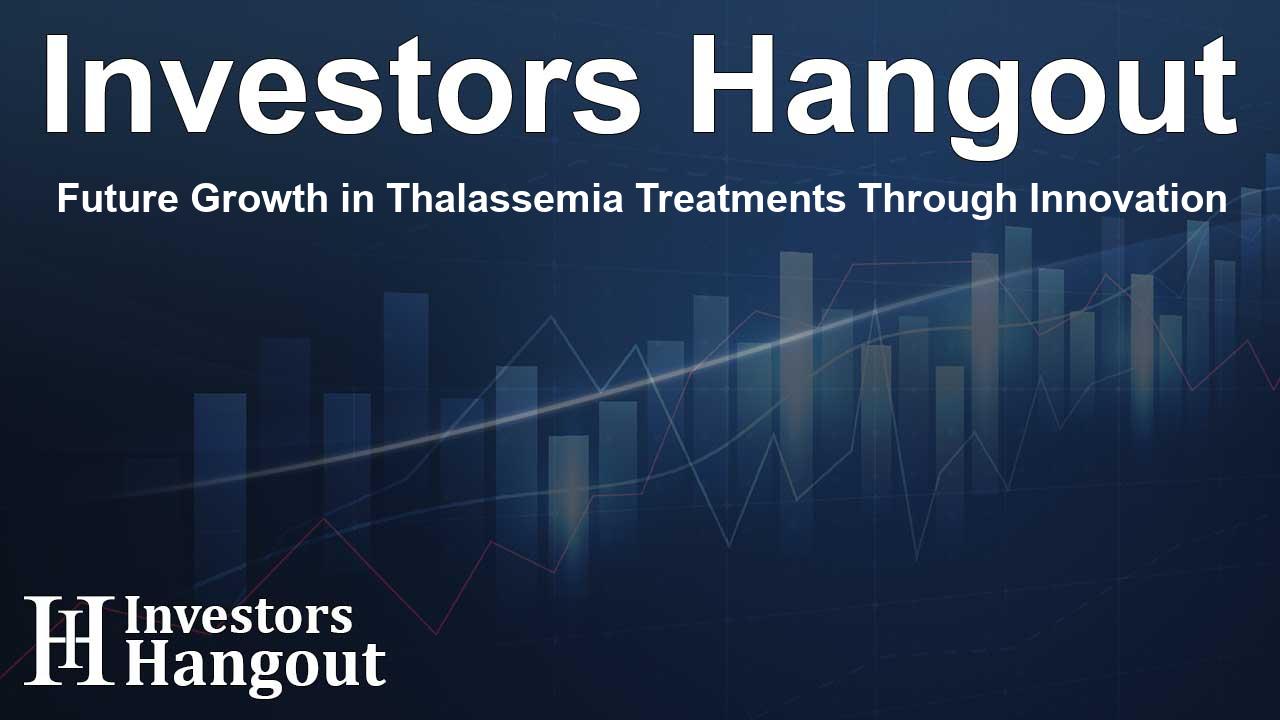Future Growth in Thalassemia Treatments Through Innovation

Thalassemia Treatment Landscape
Thalassemia is a genetic blood disorder affecting millions globally. The treatment landscape is constantly evolving, primarily driven by the need for effective management solutions for both transfusion-dependent and non-transfusion-dependent patients. This disorder can severely impact the quality of life for patients and their families, making advancements in treatment critically important.
Current Treatment Strategies
The current management of thalassemia focuses on regular blood transfusions and iron chelation therapies, which are fundamental in managing anemia and preventing iron overload. However, curative options like stem cell transplants face challenges due to the limited availability of suitable donors. As the scientific community investigates better solutions, the future looks promising with the emergence of new therapies.
Innovative Drug Developments
Drugs specifically targeting beta thalassemia, such as CASGEVY, ZYNTEGLO, and REBLOZYL, have already gained approval and are changing the treatment game. Additionally, PYRUKYND stands out as a novel therapeutic option anticipated to alleviate the need for frequent transfusions, significantly enhancing the long-term management of the disease.
The Role of Key Players
Major pharmaceutical companies are partnering and investing heavily in the thalassemia treatment sector. Companies like Agios Pharmaceuticals, Novo Nordisk, and Regeneron Pharmaceuticals are leading the charge. These firms are focusing on developing innovative thalassemia drugs that promise improved outcomes for patients.
Market Insights
The global thalassemia market is expected to show substantial growth as more patients get diagnosed, and new treatments enter the market. It is estimated that about 300 million individuals carry the thalassemia trait, with an increasing number of diagnosed cases fueling the demand for better therapies.
Growth Drivers
One major driver of market growth is enhanced diagnostic practices. Increased awareness, better prenatal screening, and improved reporting methods have led to higher diagnosis rates, thereby expanding the population in need of treatment. Moreover, the emergence of novel drug classes like pyruvate kinase activators heralds a new era in thalassemia care.
Therapeutic Innovations
Innovative therapies, such as those currently being trialed, aim to provide better results for managing both kinds of thalassemia. For instance, pyruvate kinase activators, including those developed by Agios Pharmaceuticals, have shown promise in clinical trials. The anticipated approval and launch of these treatments could revolutionize the patient care model and set new standards in thalassemia therapy.
Clinical Advancements
Beyond just drug development, advancements in genetic therapies are showing encouraging developments. Techniques like CRISPR-Cas9 are being explored to edit the genes responsible for hemoglobin production. Current treatments primarily involve symptomatic management, but gene therapies could provide permanent solutions for patients, drastically changing their lives.
Future Outlook
The thalassemia treatment market is on the brink of significant transformation. As more therapies gain approval and market entry, they are expected to reshape the standards of care. Patients who once faced frequent transfusions may find relief through these emerging treatments that not only alleviate symptoms but provide a better quality of life.
Frequently Asked Questions
What is thalassemia?
Thalassemia is a hereditary blood disorder that affects hemoglobin production, leading to anemia and various complications.
What are the main treatments for thalassemia?
Current treatments include blood transfusions, iron chelation, and emerging therapies such as gene therapy and pyruvate kinase activators.
How is the thalassemia market expected to grow?
The thalassemia market is expected to grow due to increased diagnosis rates, new drug approvals, and advancements in genetic therapies.
Which companies are leading in thalassemia drug development?
Key players include Agios Pharmaceuticals, Novo Nordisk, and Regeneron Pharmaceuticals, all actively developing innovative treatments for thalassemia.
How does improved diagnosis impact treatment accessibility?
Improved diagnosis leads to earlier treatment initiation, expanding the treated population and creating a greater demand for effective therapies.
About The Author
Contact Lucas Young privately here. Or send an email with ATTN: Lucas Young as the subject to contact@investorshangout.com.
About Investors Hangout
Investors Hangout is a leading online stock forum for financial discussion and learning, offering a wide range of free tools and resources. It draws in traders of all levels, who exchange market knowledge, investigate trading tactics, and keep an eye on industry developments in real time. Featuring financial articles, stock message boards, quotes, charts, company profiles, and live news updates. Through cooperative learning and a wealth of informational resources, it helps users from novices creating their first portfolios to experts honing their techniques. Join Investors Hangout today: https://investorshangout.com/
The content of this article is based on factual, publicly available information and does not represent legal, financial, or investment advice. Investors Hangout does not offer financial advice, and the author is not a licensed financial advisor. Consult a qualified advisor before making any financial or investment decisions based on this article. This article should not be considered advice to purchase, sell, or hold any securities or other investments. If any of the material provided here is inaccurate, please contact us for corrections.
